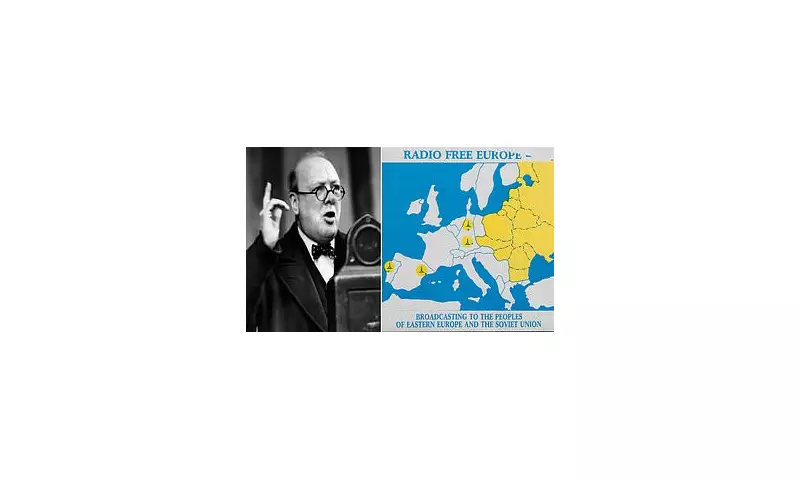
In a stunning revelation from the shadows of the Cold War, newly declassified documents have exposed a remarkable CIA operation to recruit Sir Winston Churchill's own grandson for covert propaganda broadcasts against the Soviet Union.
The extraordinary approach to Randolph Churchill in 1954 demonstrates how far American intelligence was willing to go in its psychological warfare against Moscow, even attempting to leverage one of Britain's most iconic political dynasties.
The Approach That Shook Whitehall
According to secret files released from the National Archives, CIA agents made a direct approach to Randolph Churchill with an audacious proposal: front a radio broadcast aimed at undermining Soviet influence across Eastern Europe.
The operation, codenamed 'Radio Free Europe', sought to use Churchill's famous name and aristocratic background to lend credibility to their anti-communist messaging. American intelligence believed his lineage would make him the perfect voice to challenge Moscow's ideological grip.
MI5's Swift Intervention
British intelligence quickly became aware of the approach and moved decisively to block the operation. MI5 files reveal deep concerns about an American agent operating so boldly on British soil, particularly targeting such a high-profile figure with direct connections to the wartime prime minister.
One security service memorandum noted with evident alarm: "We cannot have American agents making direct approaches of this nature in this country without any reference to ourselves."
A Family Legacy Exploited
Randolph Churchill, then a 43-year-old journalist and writer, represented more than just another potential recruit. His famous surname carried immense weight in international politics, and American strategists clearly understood the symbolic power of having a Churchill leading their propaganda charge.
His father, Sir Winston Churchill, had famously coined the term "Iron Curtain" and remained a towering figure in Western opposition to Soviet expansionism. The CIA apparently believed the son could effectively continue the father's crusade through their covert channels.
The Cold War's Unconventional Battlefields
This revelation sheds new light on the often-overlooked propaganda fronts of the Cold War, where broadcasting became as important as traditional espionage. Both American and British intelligence services invested heavily in psychological operations designed to win hearts and minds behind the Iron Curtain.
The attempted recruitment underscores how intelligence agencies sometimes operated at cross-purposes, even among allied nations, when pursuing their strategic objectives during this tense period.
These declassified documents provide a fascinating glimpse into the shadowy world of Cold War propaganda operations and the extraordinary measures intelligence services were prepared to take in their ideological struggle against the Soviet Union.





